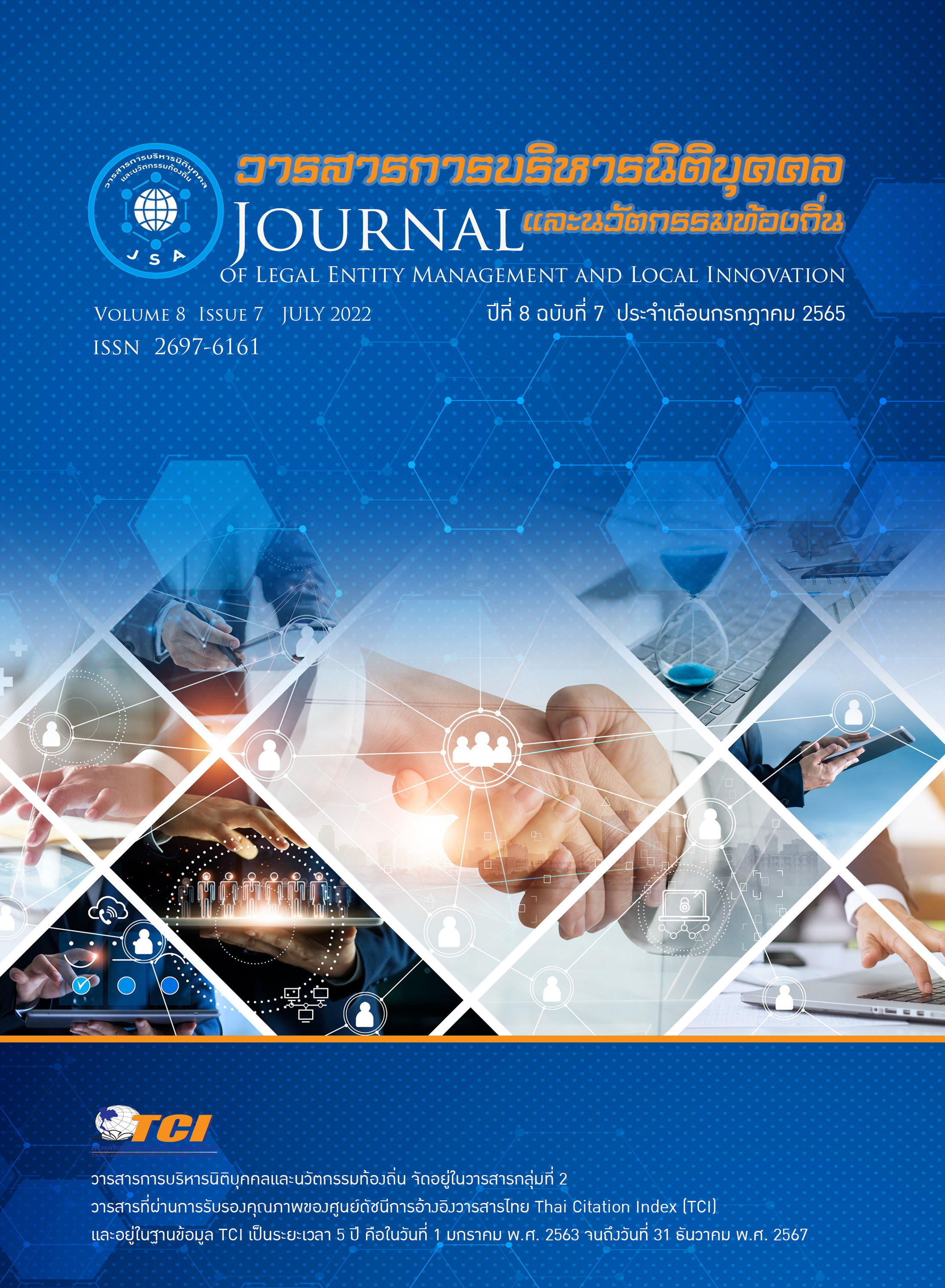People Participation in Solid Waste Managegent in Lam Ta Sao Sub-District Municipality, Wang Noi District Phra Nakhon Si Ayutthaya Province
Keywords:
People Participation, Solid Waste Managegent, Lam Ta Sao Sub-District MunicipalityAbstract
Objectives of this thesis were: 1. To study the level, 2. To study the Four Paths of Accomplishment relations and 3. To study the problems, obstacles, and suggestions for the People Participation in Solid Waste Managegent in Lam Ta Sao Sub-District Municipality. Methodology was the mixed methods: The qualitative research collected data from 12 key informants and analyzed data by content analysis. The quantitative research collected data from 392 samples by stratified sampling method using questionnaires with the reliability value at 0.968 and analyzed data by percentage, mean and standard deviation and statistical inference by determining the Pearson Correlation Coefficient. Data from open-ended questions were analyzed by content analysis technique. Findings were as follows: 1. The overall the level of People Participation in Solid Waste Managegent in Lam Ta Sao Sub-District Municipality as a whole was at a high level. When classified by aspects was found that the aspiration (with a passion for planning) was at high level 2. The results of the analysis of the Four Paths of Accomplishment relations of People Participation in Solid Waste Managegent in Lam Ta Sao Sub-District Municipality. It was found that there was positive correlation (R = 0.692), with the statistically significant level at 0.01. 3. the problems, obstacles, and suggestions for the People Participation in Solid Waste Managegent in Lam Ta Sao Sub-District Municipality were as follows: 1) Decisions or command from municipality are not flexible working system. This makes the workers had difficult to work. 2) people have fewer opportunities to work together by expressing ideas that arise in work; 3) participation in social contributions. and the community is still contrary to personal interests Sometimes people need to get involved. Both proposed and evaluated as a practical guideline for people in the community.


